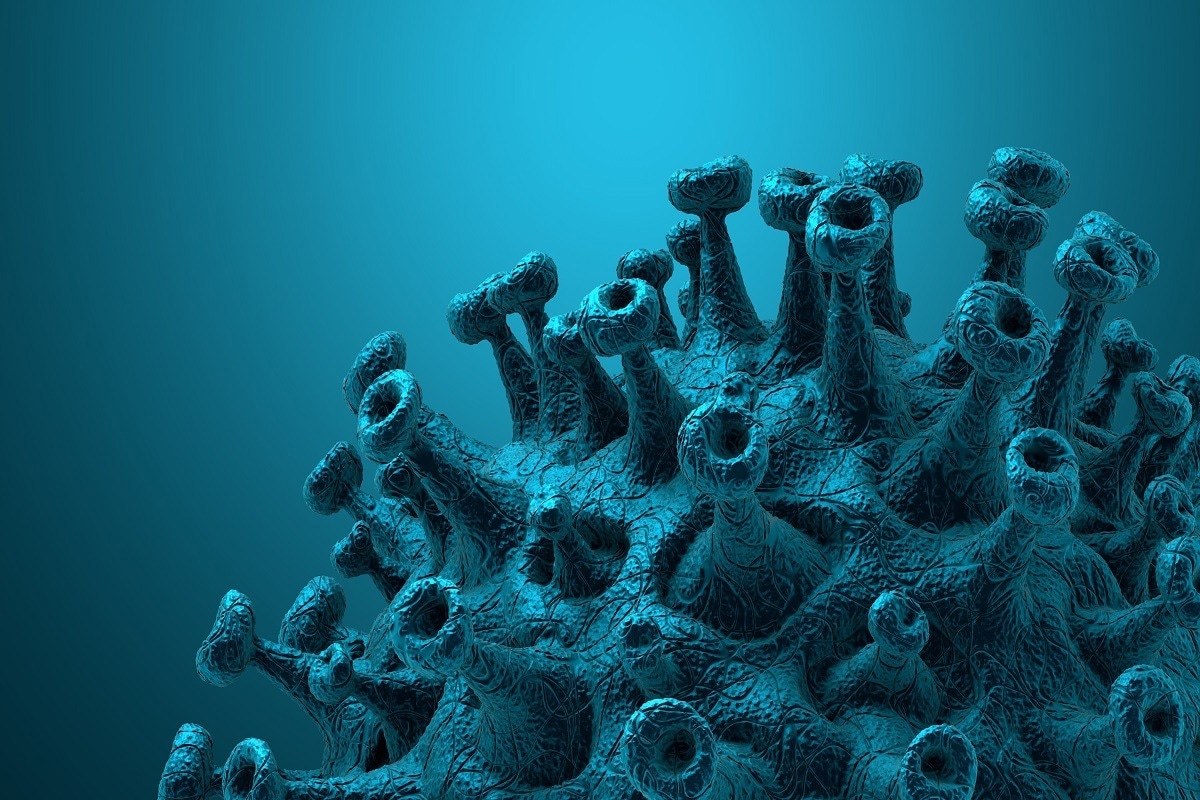A new study currently available on the Research Square* preprint server has pointed out that molnupiravir treatment increases the ratio of transition to transversion mutations in coronavirus disease 2019 (COVID-19) patients and that the treatment does not appear to induce resistance mutations in the severe acute respiratory syndrome coronavirus 2 (SARS-CoV-2) genome.
 Study: Characterisation of SARS-CoV-2 genomic variations in response to molnupiravir treatment in the AGILE Phase IIa clinical trial. Image Credit: CROCOTHERY/Shutterstock
Study: Characterisation of SARS-CoV-2 genomic variations in response to molnupiravir treatment in the AGILE Phase IIa clinical trial. Image Credit: CROCOTHERY/Shutterstock

 This news article was a review of a preliminary scientific report that had not undergone peer-review at the time of publication. Since its initial publication, the scientific report has now been peer reviewed and accepted for publication in a Scientific Journal. Links to the preliminary and peer-reviewed reports are available in the Sources section at the bottom of this article. View Sources
This news article was a review of a preliminary scientific report that had not undergone peer-review at the time of publication. Since its initial publication, the scientific report has now been peer reviewed and accepted for publication in a Scientific Journal. Links to the preliminary and peer-reviewed reports are available in the Sources section at the bottom of this article. View Sources
Background
Molnupiravir is a direct-acting ribonucleoside prodrug that has received emergency use authorization to treat COVID-19 patients. This antiviral drug, which is administered orally, directly inhibits key proteins involved in viral RNA synthesis, leading to a reduction in viral replication. The drug is known to specifically target two SARS-CoV-2 proteins, including RNA-dependent RNA polymerase and exonuclease.
Regarding the specific mechanism of action, molnupiravir is known to inhibit SARS-CoV-2 RNA synthesis by inducing G to A and C to U transition mutations. Clinical trials involving unvaccinated, at-risk COVID-19 patients have shown that molnupiravir effectively reduces the risk of hospitalization and death. However, it is unclear whether molnupiravir-induced lethal mutagenesis is associated with the emergence of resistance mutations in the virus.
In the AGILE Candidate Specific Trial (CST)-2, the scientists evaluated the risk of mutation accumulation in COVID-19 patients treated with molnupiravir.
AGILE clinical trial
The AGILE clinical trial platform in the UK has been developed for pandemic drug testing. In the phase II trial, a total of 180 outpatients with confirmed SARS-CoV-2 infection were randomized within five days of symptom onset to the treatment and placebo groups.
In the treatment group, patients received 800 mg of molnupiravir twice daily for five days. The patients in the placebo group served as controls.
Serial nasopharyngeal samples were collected from the patients over 29 days. The samples were subjected to genome quality control testing, which led to identifying viral sequences from 59 molnupiravir-treated patients and 65 placebo-treated patients.
The identified viral sequences were analyzed by high-throughput amplicon sequencing to understand the mode of action of molnupiravir.
Important observations
The findings of sequencing analysis showed a significantly increased number of transition mutations in the viral RNA collected from molnupiravir-treated patients compared to that in placebo-treated patients. The frequency of C to U and U to C mutations increased significantly in the Molnupiravir-treated samples.
To address whether molnupiravir treatment is associated with preferential enrichment of mutations in the viral RNA, the scientists performed in silico translation of the viral sequences at both the dominant and minor variant genome levels and analyzed molnupiravir-induced mutations.
Since the antiviral action of molnupiravir directly involves RNA-dependent RNA polymerase and exonuclease genes in the SARS-CoV-2 genome, these two genes are most likely to undergo positive selection pressure induced by the treatment.
The finding of mutational analysis revealed that the 5-day molnupiravir treatment does not induce any mutations in the amino acid sequence of RNA-dependent RNA polymerase and exonuclease at the dominant genome level.
An induction in viral sequence diversity was observed during the treatment in both study groups, with molnupiravir-treated group showing higher diversity at day 5. The diversity was observed throughout the viral genome, with a slight bias towards the 3’ end.
Study significance
The study findings reveal that molnupiravir exerts its antiviral effect by increasing the ratio of transition to transversion mutations in the SARS-CoV-2 genome. This corresponds to an increased frequency of C to U, G to A, and U to C mutations.
Furthermore, molnupiravir treatment does not seem to cause a consistent accumulation of mutations at any specific sites across the viral genome. This nullifies the possibility of molnupiravir-induced viral adaptation.
As mentioned by the scientists, the deep sequencing and bioinformatic approaches used in the study can benefit regulatory bodies and public health officials in monitoring resistance mutations that may emerge during large-scale therapeutic assessment of novel antiviral drugs.

 This news article was a review of a preliminary scientific report that had not undergone peer-review at the time of publication. Since its initial publication, the scientific report has now been peer reviewed and accepted for publication in a Scientific Journal. Links to the preliminary and peer-reviewed reports are available in the Sources section at the bottom of this article. View Sources
This news article was a review of a preliminary scientific report that had not undergone peer-review at the time of publication. Since its initial publication, the scientific report has now been peer reviewed and accepted for publication in a Scientific Journal. Links to the preliminary and peer-reviewed reports are available in the Sources section at the bottom of this article. View Sources